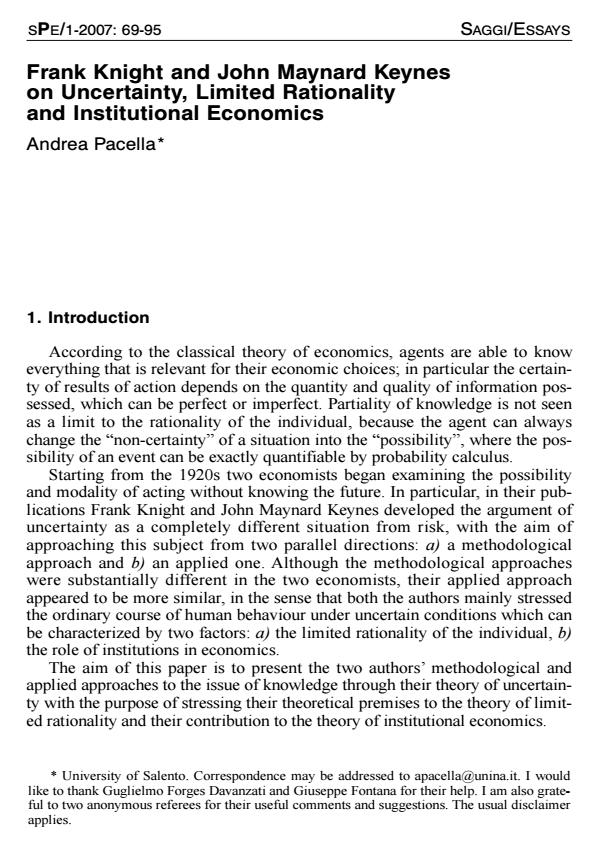Frank Knight and John Maynard Keynes on Uncertainty, Limited Rationality and Institutional Economics
Journal title STORIA DEL PENSIERO ECONOMICO
Author/s Andrea Pacella
Publishing Year 2007 Issue 2007/1
Language Italian Pages 27 P. 69-95 File size 132 KB
DOI
DOI is like a bar code for intellectual property: to have more infomation
click here
Below, you can see the article first page
If you want to buy this article in PDF format, you can do it, following the instructions to buy download credits

FrancoAngeli is member of Publishers International Linking Association, Inc (PILA), a not-for-profit association which run the CrossRef service enabling links to and from online scholarly content.
Frank Knight and John Maynard Keynes formulated their theories on uncertainty using a methodology that in certain important respects indirectly recalls the early institutionalist approach, in contrast to the mainstream economic vision. In particular, for both authors the study of uncertainty is strictly based on the analysis of the issues of agents’ knowledge and of the nature and limits of such knowledge. This is diametrically opposed to mainstream economic theory which confines its observation of uncertainty to the distributive and quantitative adequacy of the exogenously given information available to economic agents. According to the two authors, however, examining uncertainty in terms of knowledge requires a broad study of various aspects, including: a) the objective/subjective nature of the varying degrees of space-time quality of knowledge in contexts where economic agents are expected to act while assessing the future outcomes of their decisions; b) the way this relativity affects the limited rationality adopted by the agents and their behaviours. Based on these considerations, the aim of this paper is therefore to illustrate the methodological approach that the two authors apply to this subject, highlighting their similarities and differences.
Andrea Pacella, Frank Knight and John Maynard Keynes on Uncertainty, Limited Rationality and Institutional Economics in "STORIA DEL PENSIERO ECONOMICO" 1/2007, pp 69-95, DOI: